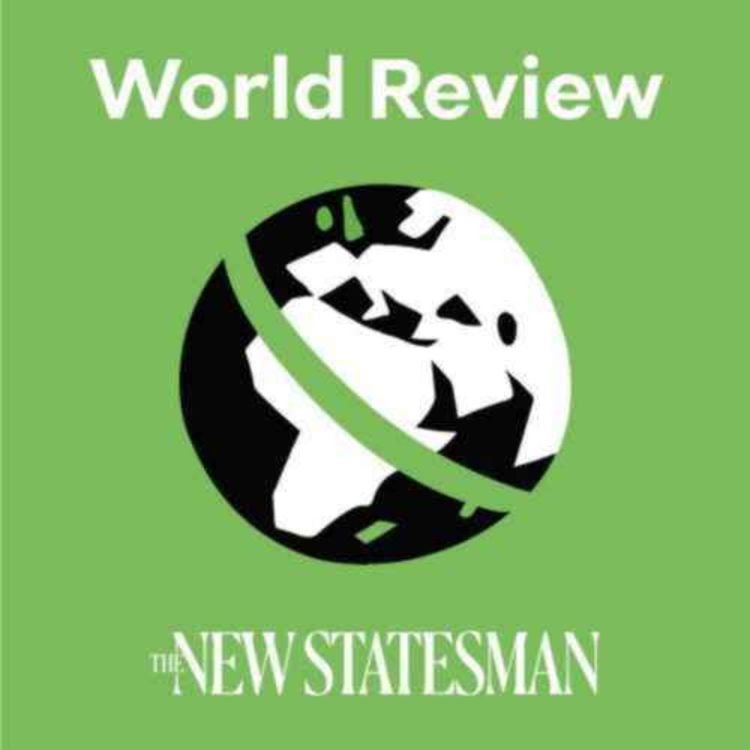Share

Daily Politics from the New Statesman
Losing Gaza
“We cannot know what sort of human beings will emerge from this.”
Following Hamas’s deadly attack on 7 October 2023, Israel’s military response has been described as “inevitable”. Eleven months on, the scope and ferocity of that military response has stunned the world.
In this episode of the podcast we speak to four of the writers who contributed to the New Statesman essay collection Losing Gaza.
Raja Shehadeh: “Palestinians are not treated as human beings deserving of human rights”
Ghada Karmi: “The physical damage of Israel’s assault is real enough. The mental trauma will be far worse”
Raja Khalidi: “After the war, world leaders will need a new Marshall Plan for Palestine”
Mezna Qato: “Without our libraries and universities, how will we tell the story of Gaza?”
SAVE £££ THIS CHRISTMAS:
⭐️ Gift big ideas, bold politics, and proper journalism from just £2
LISTEN AD-FREE:
📱Download the New Statesman app
MORE FROM THE NEW STATESMAN:
❓ Ask a question – we answer them every Friday
⏰ Get our daily politics newsletter every morning
✍️ Enjoy the best of our writing via email every Saturday
More episodes
View all episodes

Puberty blockers, blocked
27:46|Should some children be given drugs to stop them going through puberty?That’s the question the NHS, the government and an independent research and ethics committee have been trying to answer.The “Pathways” trial, backed by the NHS and led by a team from King’s College London, aims to test the effectiveness and safety of puberty blockers for children experiencing gender dysphoria.At the end of 2025, the trial was approved to go ahead. Health Secretary Wes Streeting reassured parliamentary colleagues it “could not have received more oversight and scrutiny”. But now the agency in charge of medicine regulation has U-turned. The study is now paused because of ethical and safety concerns. All of which, Hannah Barnes reports today on the New Statesman website, they knew about when they first approved it.So how did the study get approved in the first place? And what does this tell us about the systems we trust to ensure medical research is safe and ethical?Also: Baroness Amos has released the interim findings from her review into England's maternity care, and says the system is "not working". Oli Dugmore is joined by Hannah Barnes to discuss.READ MOREInside the decision to pause the puberty blockers trialEngland's maternity system "not working" for anyone, report says
Andrew, Epstein and the crumbling crown
40:04|Last Thursday, Andrew Mountbatten-Windsor, was arrested on suspicion of misconduct in public office. He has since been released under investigation. The police have searched Andrew’s former home, Royal Lodge.The former Prince’s relationship to convicted paedophile Jeffrey Epstein is triggering a reckoning for not just Andrew, but the monarchy itself.Oli Dugmore is joined by Will Lloyd to discuss.
A three horse race in Gorton and Denton
24:46|On Thursday, a by-election in a Southern Manchester constituency, Gorton and Denton, is shaping up to be a seismic litmus test for British politics.After the previous MP, Labour’s Andrew Gwynne, stepped down in January, an opening for a new MP has set in motion a battle between Labour and their insurgent challengers, Reform and the Green Party.Oli Dugmore is joined by our senior data journalist Ben Walker to discuss.
What if Russia wins?
35:41|It has been four years since Russia’s full-scale invasion of Ukraine. The war has settled into a grinding and uncertain stalemate.Despite proving remarkably resilient, Ukraine, and the rest of the world, must face the question: What if Russia wins?Katie Stallard explores this urgent question with German political scientist, Professor Carlo Masala.
Labour Together’s attack on press freedom
27:45|Why has Keir Starmer ordered an investigation into Labour Together? What the hell is going on with our local elections? And what are we meant to make of Reform UK’s new “shadow cabinet”?You asked, we’ll answer. Anoosh Chakelian is joined by Rachel Cunliffe for the listener questions episode of Daily Politics from the New Statesman.📚 READ: https://www.newstatesman.com/politics/uk-politics/2026/02/dismay-as-no-10-works-with-brendan-cox-after-misconduct-claims
Rutger Bregman “This Trump phenomenon really is fascism”
22:04|This week we launched another, that’s right ANOTHER, podcast. The Exchange is the New Statesman’s long-form interviews show, featuring some big names you know, and some big names you’ll be glad to learn of.Listen on: Spotify and Apple
Andrew arrested
28:20|The King’s brother, Andrew Mountbatten-Windsor, has been arrested.The alleged offence: misconduct in public office. The arrest came after claims Andrew allegedly shared official documents during his time as UK Trade Envoy, with two emails in particular showing up in the latest Epstein files – although police haven’t yet released the specifics of their investigation.Police have searched Andrew’s homes, and at the time of recording the former Prince is in custody. He’s not yet been charged, and has previously – strenuously – denied any wrongdoing on these matters related to Epstein. The King has said “the law must take its course”. Oli Dugmore is joined by Will Lloyd in the studio.
Is Bridget Phillipson really the most dangerous woman in Britain?
36:02|From “Nazi” to “Marxist” Bridget Phillipson, the education secretary, has faced intense criticism from all sides.But how exactly is she trying to reform the British education system? For the cover of this week’s New Statesman magazine, our executive editor Pippa Bailey has written an extended profile of Phillipson - exploring what motivates the education secretary, and how consequential the next few months could be for her - and the Labour Party.She joins Oli Dugmore in the studio.📚 READ: https://www.newstatesman.com/cover-story/2026/02/is-bridget-phillipson-the-most-dangerous-woman-in-britain
Has Starmer killed Welsh Labour?
27:29|Eluned Morgan, the first minister of Wales speaks to Megan Kenyon about her relationship with Keir Starmer, Welsh Labour’s prospects in the upcoming Senedd election and the threat of Plaid Cymru and Reform.